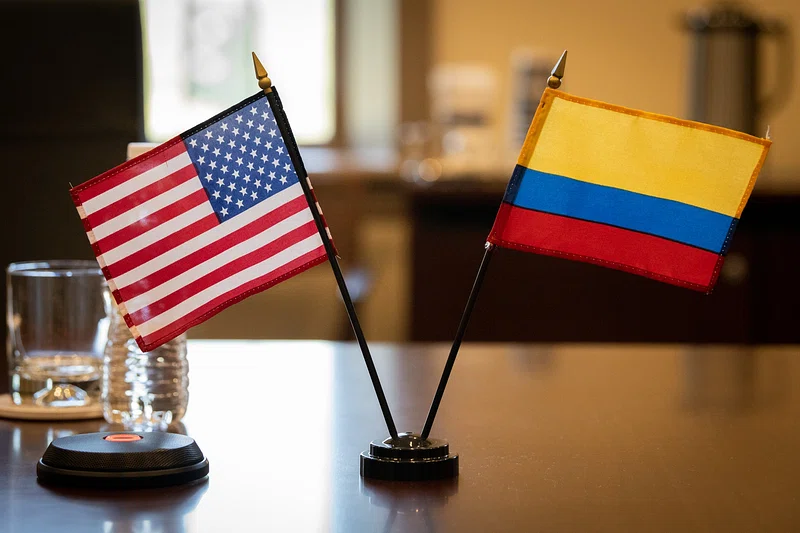When Donald Trump first took office in 2017, his administration introduced some of the most extreme and controversial immigration policies in modern United States history. Among them was the implementation of the “Migrant Protection Protocols,” also referred to as the “Remain in Mexico,” program in 2019. Under this policy, more than 70,000 migrants were sent back to Mexico, and those seeking asylum were forced to remain in Mexico until their immigration court date. Throughout his presidency, Trump’s rhetoric and policies consistently portrayed undocumented immigrants as threats to national security. Now, as he begins another term in the White House, his immigration stance remains as bold as ever. But this time, some Latin American nations–most notably Colombia–are pushing back.
Colombian President Gustavo Petro recently made headlines by refusing to accept deportation flights of Colombian nationals unless the U.S. could provide proof that these migrants were treated with dignity. This decision marked a rare act of defiance in U.S.-Latin America relations, directly challenging the authority the American government has long held over deportation procedures.
While most countries reluctantly comply with American deportation policies, Colombia is taking an unprecedented stand, demanding transparency and humane treatment of its citizens. This move not only signals a growing willingness among Latin American leaders to challenge U.S. immigration policies but exposes the uncomfortable reality that migrant rights are often sacrificed in favor of political strategizing.
In response, Trump threatened to impose a 25 percent tariff on Colombian exports, potentially devastating key industries like coffee, flowers and oil, which rely heavily on U.S. consumers. Additionally, the Trump administration announced visa restrictions on Colombian officials, pressuring Petro’s administration to comply. Trump reinforced his stance, warning that the tariffs would be raised to 50 percent within a week if Colombia did not yield.
Yet, this time, the tactics of economic coercion did not garner immediate results. Rather than backing down, Petro’s administration stood strong, demanding proof that deported Colombian migrants had been treated with basic human dignity. While Colombia ultimately agreed to resume accepting deportation flights, the resistance delayed the process and sent a strong message: the era of unquestioned compliance with U.S. deportation demands may be coming to an end.
Petro’s defiance challenges the core message of Trump’s immigration policies, which often reduce migrants to criminal stereotypes rather than acknowledging them as individuals with rights. Trump has long framed deportation as a matter of national defense, using fear-based narratives to justify mass removals. By demanding transparency, Colombia is pushing back against this dehumanization, asserting that migrants cannot simply be discarded without accountability.
The U.S. frequently pressures Latin American countries to police migration at their borders while resisting criticism of its own treatment of migrants. Petro’s stance disrupts this imbalance, shifting the conversation toward migrant rights throughout the entire deportation process, not just when they arrive back home.
Colombia’s resistance could reshape relations between the U.S. and Latin America. Historically, many Latin American governments have been reluctant to challenge U.S. immigration policies, fearing economic retaliation, such as the ones threatened by Trump. But, as political landscapes shift and nationalist movements grow, leaders like Petro must advocate more forcefully for their citizens abroad.
If other countries follow suit, America may find itself under increasing pressure to reform its deportation procedures, not just from domestic human rights advocates but also from the very nations receiving these deported individuals.
Colombia’s decision to confront the U.S. on deportations is more than just a diplomatic dispute; it is a statement on the rights and dignity of migrants. While Petro’s resistance was ultimately met with economic repercussions from the U.S., it has started a conversation that cannot be ignored.
As Trump continues to double down on his immigration agenda, some nations are making it clear they will not simply be passive onlookers to U.S. policies. Whether this moment sparks a broader movement remains to be seen, but one thing is certain: U.S. immigration policies are no longer being accepted without objection.







